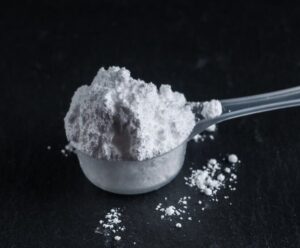Global microcrystalline cellulose market forecast at $1.79 billion by 2033
Pune, India – The global microcrystalline cellulose market is anticipated to have enormous potential opportunities, with a compound annual growth rate (CAGR) of 6.3% from 2023 to 2033. By the end of 2033, the global market value is projected to have increased from US$ 974.7 million in 2023 to US$ 1,794.1 million.
The growth of the market is attributed to its surging demand across numerous end-use industries across the world. During the historic period, the global microcrystalline cellulose market witnessed a sluggish CAGR of 4.9% from 2018 to 2022.
Microcrystalline cellulose (MCC) is known as a robust plant-derived ingredient consisting of remarkable functional properties that accurately suit its industrial applications such as a binder, thickening agent, filler, anti-cracking agent, fat replacer, disintegrate, emulsifying agent, absorbing agent, and many more.
The aforementioned functional properties of MCC make it a good fit as an ingredient in manufacturing several other products like cosmetics and personal care, paints and coatings, detergents, dye absorbers, rubber, etc. Among numerous end-use industries, the pharmaceutical industry is predicted to showcase steady growth over the next few years.
The widespread demand for microcrystalline cellulose is anticipated to be fueled by pharmaceutical industries. MCC is used as an excipient in pharmaceutical drug formulation owing to its binding, disintegration, gliding, dilution, and carrier applications. Specifically, from 2020 onwards, the demand for drugs and medicines witnessed a significant surge due to which the subsequent demand for MCC hiked from pharmaceutical drug manufacturers.
Major players within the developed market are heftily investing in innovations to capture the untapped potential applications of MCC in consumer products. Apart from this, Asia-Pacific market participants are investing in expanding their production facilities to meet the rising market demand. As a cumulative impact of these developments, the global microcrystalline cellulose market will thrive through the projection period.
Food & beverage applications of microcrystalline cellulose have witnessed a significant demand in recent years. Traditionally, it has been utilized as a thickening and emulsifying agent, binder, filler, and anti-cracking agent in several foods such as bakery products, meats, dairy, and seafood products.
MCC is known as an excellent alternative to fats. Since, it is derived from plants, the usage of MCC in the food & beverages industry is anticipated to propel due to the growing preference for plant-based products from consumers in near future.
Besides this, several research and innovations in recent years have shown that MCC can act as a soil conditioner and agrochemical in the agricultural industry, density controller and flowability enhancer in detergents, adhesive in general industries, substitute in rubber production, and absorber in dye industries. These applications and many more are expected to facilitate opportunities for MCC in industrial applications.
Microcrystalline cellulose (MCC) is optimally derived from wood pulp which accounts for a prominent portion of the overall production of MCC. It needs plenty of tree wood obtained by cutting natural resources like forests. This process poses a lot of environmental challenges and restrictions from the governments. Hence, the wood-based production of MCC is being replaced by other natural resources like cotton crops, bamboo farming, corn, banana, and soybean crops, etc.
Prominent players operating in the global microcrystalline cellulose market acquire a crucial share of the industry include: DuPont de Nemours, Inc, Asahi Kasei Corporation, DFE Pharma, J. RETTENMAIER & SÖHNE GmbH + Co KG, Accent Microcell Pvt. Ltd., Foodchem International Corporation, Mingtai Chemical Co., Ltd, Sigachi Industries Pvt. Ltd., Chemfield Cellulose, NB Entrepreneur, Anhui Sunhere Pharmaceutical Excipients Co., Ltd., Roquette Frères S.A., Libraw Pharma, Ankit Pulps and Boards Pvt. Ltd, Pharmatrans Sanaq AG, Wei Ming Pharmaceutical Mfg Co. Ltd, Sixring, and RanQ are the leading manufacturers of the microcrystalline cellulose market.

